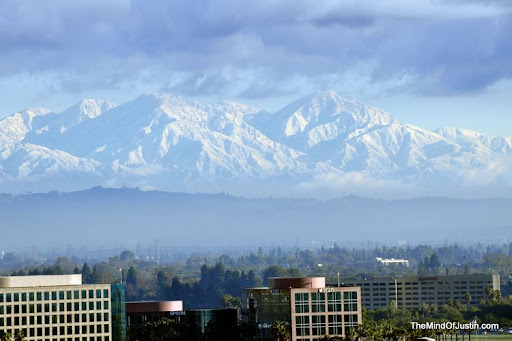
Night owls may have been startled by the ground's faint rumble earlier today when a magnitude 3.3 earthquake struck about two miles south of Gardena.
The quake occurred at 12:36 a.m., according to the U.S. Geological Survey.
The Los Angeles County Fire Department said there were no immediate reports of fires, damages or injuries from the trembler, according to dispatch supervisor Robert Diaz.
Earthquake Reminder: Preparation is the Key
Every earthquake serves as a reminder to residents and businesses in the Belmont Shore area that it is important to know how to prepare for and respond to an earthquake.
Following Japan's devastating quake and tsunami on March 11, the the following earthquake preparedness tips were presented by the California Office of Emergency Services.
Before an Earthquake
- Prepare an emergency kit of food, water and supplies including a flashlight, portable battery-operated radio, batteries, medicines, a first aid kit, money and clothing.
- Know the safe spots in each room – under sturdy tables, desks or against interior walls.
- Know the danger spots – near windows, mirrors, hanging objects, fireplaces and tall, unsecured furniture.
- Conduct practice drills so you and your family know the safe locations in your home.
- Decide how and where your family will reunite if you become separated during an earthquake.
- Choose an out-of-state friend or relative who family members can call after the quake to report their whereabouts and conditions.
- Learn first aid and CPR.
- Learn how to shut off gas, water and electricity in case the lines are damaged. Do not attempt to relight the gas pilot; call the utility company.
- Secure your water heater and major appliances as well as tall, heavy furniture, hanging plants, mirrors and picture frames – especially those over beds.
- Keep breakables, heavy objects and flammable or hazardous liquids such as paints, pest sprays and cleaning products in secured cabinets or on lower shelves.
During an Earthquake
- If indoors, stay there. Get under a desk or table or stand in a corner.
- If outdoors, get into an open area away from trees, buildings, walls and power lines.
- If in a high-rise building, stay away from windows and outside walls. Get under a table. Do not use elevators.
- If driving, pull over to the side of the road and stop. Avoid overpasses and power lines. Stay inside your car until the shaking is over.
- If in a crowded public place, do not rush for the doors. Crouch and cover your head and neck with your hands and arms.
After an Earthquake
- Unless there is an immediate, life-threatening emergency, do not attempt to use the telephone.
- Check for gas and water leaks, broken electrical wiring or sewage lines. If there is damage, turn the utility off at the source and immediately report gas leaks to your utility company. Check for downed power lines; warn others to stay away.
- Check your building for cracks and damage, including the roof, chimneys and foundation.
- Turn on your portable radio for instructions and news reports. For your own safety, cooperate fully with public safety officials and follow instructions.
- Do not use your vehicle unless there is an emergency. Keep the streets clear for emergency vehicles.
- Be prepared for aftershocks.
- Stay calm and lend a hand to others.
- If you evacuate, leave a message at your home telling family members and others where you can be found.
No comments:
Post a Comment